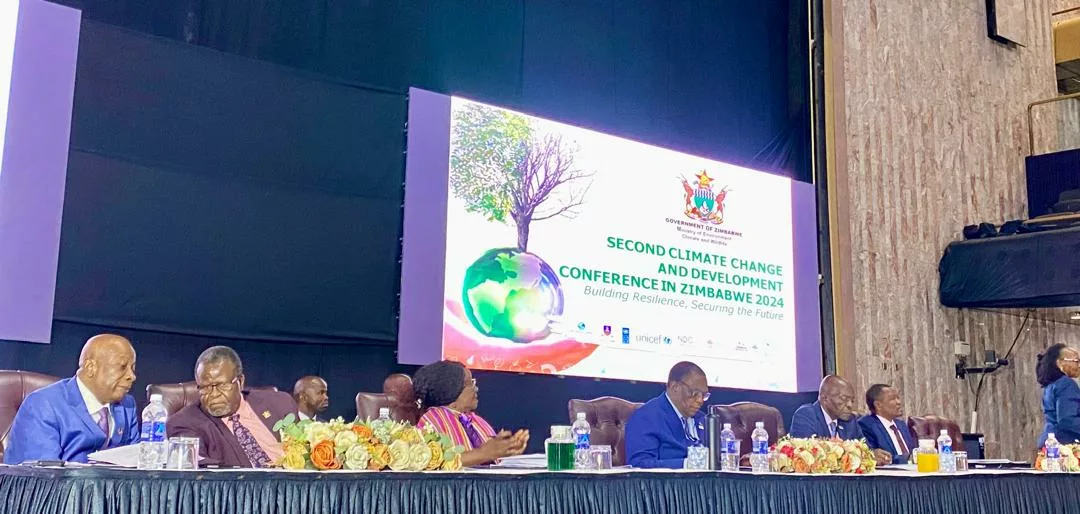|
Getting your Trinity Audio player ready...
|
Zimbabwe’s second Climate Change and Development Conference has urged a multi-stakeholder approach by involving women, children, and youth in addressing the phenomenon that impacts livelihoods.
In his remarks during the opening of the conference, His Excellency Mr. Edward Kallon, the United Nations (UN) Zimbabwe Resident and Humanitarian Coordinator underscored the importance of involving marginalised groups like children, women, and youth in addressing climate change.
“Given the fact that children and young people are disproportionately affected by the environmental, social, and economic consequences of climate change due to their physiological and developmental stage, it is very critical that we put them at the Centre of climate policies, strategies, and plans.
“I therefore want to take this opportunity to applaud the Government of Zimbabwe for championing the children, youth, and climate change agenda on various global platforms including the Expert dialogue on children and climate change during the June 2024 UN Climate meetings in Bonn,” HE Kallon said.
The Global Stock Take at COP 28 recommended a thorough discussion of the disproportionate impacts of climate change on children. This marked a pivotal moment in ensuring that the unique vulnerabilities of children are acknowledged and that appropriate policy solutions are brought to the forefront.
“We must also acknowledge the role of our children and youth in addressing climate change, not only as leaders of tomorrow but also as change makers.
“In the same vein, we must also acknowledge the role of Women, indigenous communities, etc not only as victims but also as stakeholders in adaptation and mitigation to climate change,” HE Kallon added.
Several initiatives are expected to propel Zimbabwe on its course towards achieving its Vision 2030. These initiatives include the Investment Framework for the Long-Term Low Emissions Development Strategy (LT-LEDS) and the Nationally Determined Contributions (NDC).
Climate finance will be necessary to enable the transition towards greener economies, support climate-resilient infrastructure development, and, help to protect the livelihoods of vulnerable communities. Without adequate climate finance, the aspirations for sustainable development and climate resilience remain at risk.
The UN Secretary-General urged the entire UN system to come together to collectively help governments rise to the moment, seize the opportunity, and create new national climate plans aligned with the 1.5-degree limit.
In Zimbabwe, this means providing technical assistance to develop and strengthen the Climate Investment Framework and ensuring that the plans are not just aspirational but actionable. It also means marshalling all the support required to enhance the country’s Nationally Determined Contributions and also accelerate inclusive climate action across all sectors with the participation of all stakeholders including women and children.






